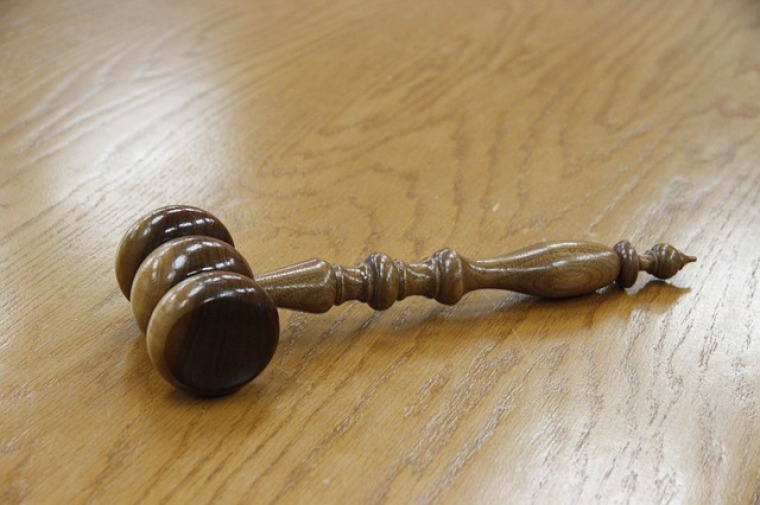Judge nixes part of Indiana law against aborted baby parts trafficking

A judge has struck down a portion of an Indiana legislation that prohibits the sales of aborted baby body parts, arguing that most of the law was unconstitutional.
Chief Judge Jane Magnus-Stinson of the U.S. District Court for the Southern District of Indiana ruled in favor of the trustees of Indiana University on their challenge to a section of the 2016 House Enrolled Act 1337.
According to a report from The Indiana Lawyer, the provision in question makes it a felony for a person to intentionally acquire, receive, sell or transfer aborted tissue.
The judge found that the language in the legislation violated five constitutional provisions, namely, the dormant commerce, equal protection and due process clauses, the prohibition against regulatory takings and the First Amendment.
One portion of the law defines fetal tissue to include tissue, organs or "any other part" of an aborted fetus. While the prosecutors tried to clarify that the definition does not apply to fetal cells or cell lines that are not originally "part of an aborted fetus," the judge ruled that the definition does not help to resolve the statute's underlying vagueness.
The judge also deemed the portion against acquiring, receiving or transferring aborted fetal tissue to be vague, saying, "a person of ordinary intelligence could not determine what constitutes a 'transfer.'"
Magnus-Stinson contended that the vagueness in the language would require prosecutors to develop their own definitions, subjecting the statute to arbitrary and discriminatory enforcement.
The Indiana Lawyer noted that the judge allowed the prohibition on the sale of aborted fetal tissue to remain.
Indiana University sued the Marion and Monroe County prosecutors after the measure was passed in 2016, arguing that the law will jeopardize research and stifle academic freedom.
Dr. David Prentice, vice president and research director for the Charlotte Lozier Institute, had previously argued that the lawsuit does not provide any proof that aborted fetal parts are necessary for scientific research.
"Their complaint makes vague statements about the need for the research, as well as the oft-cited but unproven claim that they will not be able to hire research faculty if the prohibition remains in effect. However, their claims lack any substantive proofs that the research use of aborted fetal tissue is critical or unique," Prentice said.
The judge had backed the prosecutors on the university's claims that the law infringed upon their First Amendment academic freedom rights, saying the school did not prove "the First Amendment prevents states from enacting statutes prohibiting conduct in which the University would like to engage, and then teach about."
Magnus-Stinson has ordered the magistrate judge to meet with both parties to determine whether a final judgment can be issued or whether further proceedings in the case will be necessary.
 Christians don't have to affirm transgenderism, but they can’t express that view at work: tribunal
Christians don't have to affirm transgenderism, but they can’t express that view at work: tribunal Archaeology discovery: Medieval Christian prayer beads found on Holy Island
Archaeology discovery: Medieval Christian prayer beads found on Holy Island Presbyterian Church in America votes to leave National Association of Evangelicals
Presbyterian Church in America votes to leave National Association of Evangelicals Over 50 killed in 'vile and satanic' attack at Nigerian church on Pentecost Sunday
Over 50 killed in 'vile and satanic' attack at Nigerian church on Pentecost Sunday Ukrainian Orthodox Church severs ties with Moscow over Patriarch Kirill's support for Putin's war
Ukrainian Orthodox Church severs ties with Moscow over Patriarch Kirill's support for Putin's war Islamic State kills 20 Nigerian Christians as revenge for US airstrike
Islamic State kills 20 Nigerian Christians as revenge for US airstrike Man who served 33 years in prison for murder leads inmates to Christ
Man who served 33 years in prison for murder leads inmates to Christ


 Nigerian student beaten to death, body burned over ‘blasphemous’ WhatsApp message
Nigerian student beaten to death, body burned over ‘blasphemous’ WhatsApp message 'A new low': World reacts after Hong Kong arrests 90-year-old Cardinal Joseph Zen
'A new low': World reacts after Hong Kong arrests 90-year-old Cardinal Joseph Zen Iran sentences Christian man to 10 years in prison for hosting house church worship gathering
Iran sentences Christian man to 10 years in prison for hosting house church worship gathering French Guyana: Pastor shot dead, church set on fire after meeting delegation of Evangelicals
French Guyana: Pastor shot dead, church set on fire after meeting delegation of Evangelicals ‘Talking Jesus’ report finds only 6% of UK adults identify as practicing Christians
‘Talking Jesus’ report finds only 6% of UK adults identify as practicing Christians Mission Eurasia ministry center blown up in Ukraine, hundreds of Bibles destroyed: 'God will provide'
Mission Eurasia ministry center blown up in Ukraine, hundreds of Bibles destroyed: 'God will provide' Church holds service for first time after ISIS desecrated it 8 years ago
Church holds service for first time after ISIS desecrated it 8 years ago Burger King apologizes for 'offensive campaign' using Jesus' words at the Last Supper
Burger King apologizes for 'offensive campaign' using Jesus' words at the Last Supper Uganda: Muslims abduct teacher, burn him inside mosque for praying in Christ’s name
Uganda: Muslims abduct teacher, burn him inside mosque for praying in Christ’s name